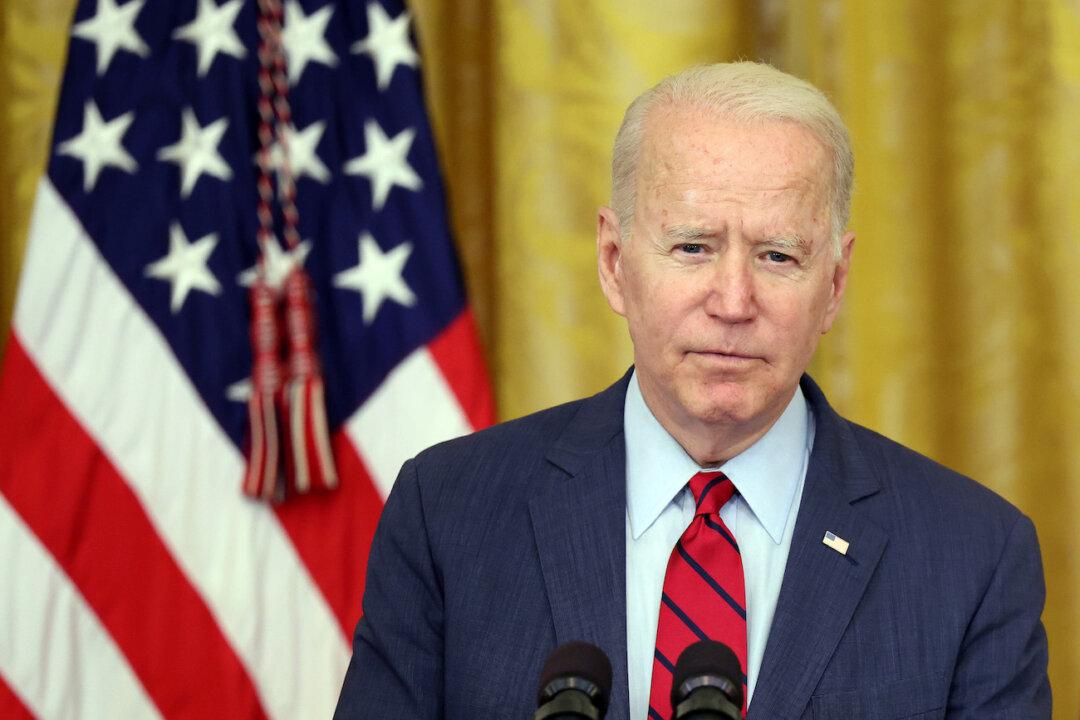President Joe Biden on Thursday told reporters that he won’t be signing the bipartisan infrastructure deal if Congress does not also pass a another measure—a budget resolution that Democrats call “human infrastructure” that they want to push through via reconciliation to bypass the Senate filibuster.
Biden told reporters at the White House that he would not sign the bipartisan deal if it was the “only one” that seeks his desk.




